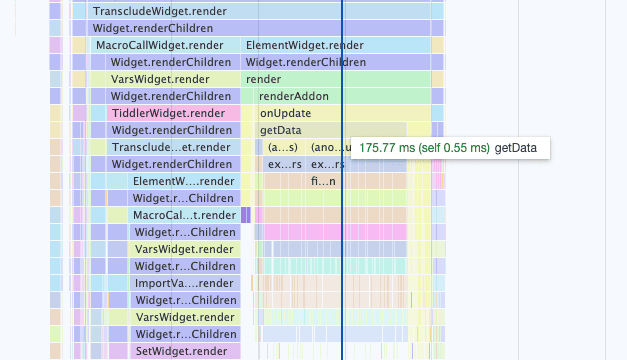I have:
1000 shadows of which 10 are tagged “foo”
100 tiddlers of which 10 are tagged “foo”
(All tiddlers+shadows are identical except for the tags.)
Which of these filters is faster? And what’s the reasoning?
-
[all[tiddlers+shadows]tag[foo]is[tiddler]] -
[all[tiddlers+shadows]is[tiddler]tag[foo]]
Any difference if the filter is split into two runs with a + injected?
Thanx!


